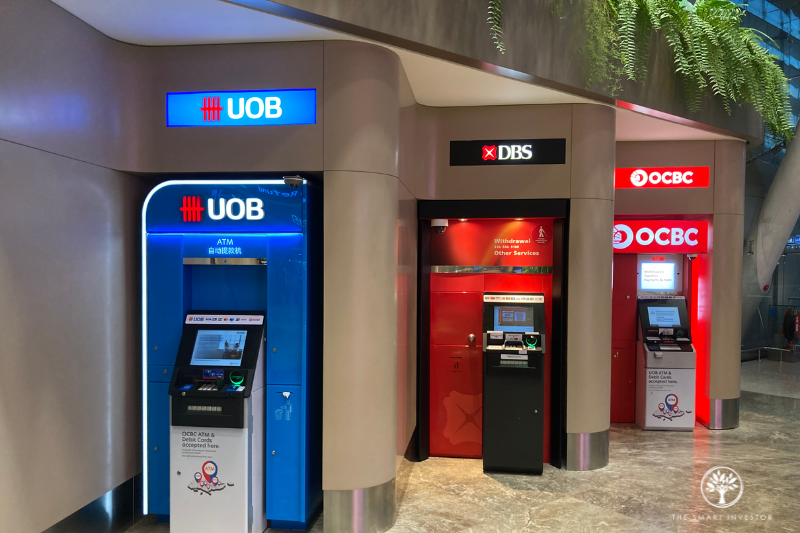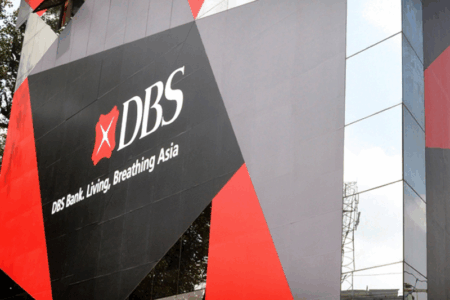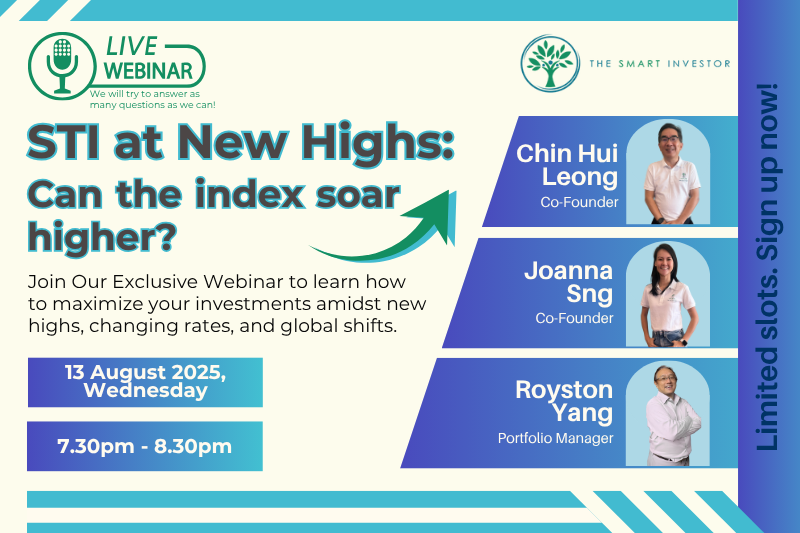Of the 30 blue-chip stocks within the Straits Times Index (SGX: ^STI), the three local banks have performed well as a whole.
A combination of elevated interest rates and wealth inflows has strengthened the banks’ financials and allowed them to post record-high profits.
As a result, DBS Group (SGX: D05) saw its share price hit an all-time high of close to S$47 earlier this year.
Its peers, United Overseas Bank (SGX: U11), or UOB, and OCBC Ltd (SGX: O39), also did well.
OCBC hit an all-time high of S$17.93 earlier this year, while UOB saw its share price hit a record of S$39.20 around the same time.
Can the trio of banks revisit these share price highs anytime soon? Let’s find out.
Interest rates may stay higher for longer
Banks’ fortunes are tied very closely to the level of interest rates, as rates determine the level of net interest margin (NIM) and net interest income.
On this front, the three banks may continue to enjoy elevated NIMs as interest rates look poised to stay “higher for longer”.
The US Federal Reserve (“Fed”) kept interest rates steady at its most recent meeting in June.
Officials expect higher inflation and lower economic growth and are poised to cut interest rates just twice for the remainder of this year.
However, officials expect four interest rate cuts for both 2026 and 2027, one less than originally projected.
From the borrowing rate’s current range of 4.25% to 4.5%, officials now expect the rate to end at 3.4% by 2027.
Also, seven out of 19 participants at the meeting looked at no rate cuts this year, perhaps worried about the effects of high inflation.
This number was up from just four at the beginning of this year.
The Fed is taking a cautious stance as it does not wish to slash interest rates prematurely, only to allow inflation to come roaring back.
Yet, most officials also acknowledge that keeping rates high for too long may risk stunting economic growth.
Hence, the US central bank has a delicate balancing act to fulfil and is carefully assessing incoming economic data before making a decision.
Meanwhile, the three banks should enjoy better net interest income if they can continue to grow their loan books while maintaining their NIMs.
Continued wealth inflows
Another catalyst for the banks comes in the form of higher non-interest income, or fee income.
Higher fees are garnered from wealth inflows, which result in a year-on-year increase in the assets under management (AUM) for each bank.
Higher credit card spending also generates better fees for the bank.
These two aspects were evident in DBS’s recent first quarter of 2025 (1Q 2025) earnings.
Fee income for Singapore’s largest bank shot up 22% year on year to S$1.3 billion.
UOB saw its net fee income jump 20% year on year to S$694 million, while OCBC’s fee income increased by 10% year on year to S$1.3 billion.
There could be more to come as Singapore reported that the number of single-family offices grew to 2,000 in 2024, up from 1,650 back in September last year.
Morningstar (NASDAQ: MORN) also reported that fund inflows into Singapore surged 167% year on year to S$7.6 billion last year.
Should these inflows continue this year, the banks should see sustained increases in their fee income.
A new world order?
However, Trump’s recent announcement of a raft of reciprocal tariffs could throw a spanner in the banks’ works.
These tariffs are part of a negotiation tactic devised by the US president, and many countries are now discussing trade deals with the US because of them.
These tariffs could upset the current world order and usher in a new one where protectionism rules and globalisation takes a back seat.
In the meantime, costs will be pushed up by these tariffs and result in higher expenses for businesses, prompting them to raise prices.
Supply chains could also be disrupted as a result of these tariffs, and companies may hold back from investments.
Higher prices will dent consumer sentiment and lower consumer spending, thus stunting growth for the banks.
Get Smart: Dark clouds could be looming
The outcome of these tariffs will not be known for some time.
However, the announcement of these taxes is like a dark cloud that is looming over the bank’s fortunes.
While interest rates and wealth inflows are positive catalysts that should drive earnings, Trump’s tariffs could result in slower loan growth and weaker spending.
Hence, bank investors should proceed cautiously and wait for the next earnings update to assess the economic outlook.
We’ve found 5 SGX-listed dividend stocks with strong track records in turbulent markets. If you want consistency in an uncertain world, start here.
Follow us on Facebook, Instagram and Telegram for the latest investing news and analyses!
Disclosure: Royston Yang owns shares of DBS Group.






